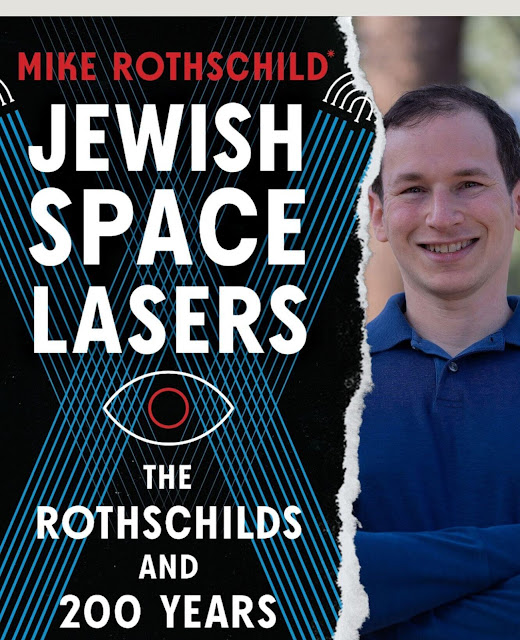Here are a few excerpts from a book I recently read, "Jewish Space Lasers: The Rothschilds and 200 Years of Conspiracy Theories," by Mike Rothschild.
But by the Middle Ages, European Jews were also forbidden from working in the majority of other professions—particularly agriculture, which was the most prevalent “career” of the time. This led Jews to embrace lending money at interest and changing currency for a fee, primarily as a means of economic survival. So the prohibitions on lending at interest in the Torah were essentially suspended by rabbis of the time out of necessity. Without concepts of natural law or mortal sin, and with rabbis of the time being an eminently practical sort who wished to see their people prosper in the few arenas in which they were allowed to prosper, these considerations simply didn’t apply.
Jews also emphasized literacy and education to a much higher degree than non-Jews. Starting with the destruction of the Second Temple in 70 c.e., every Jewish man had to be able to read the Torah, and Jewish families traditionally sent their children to school earlier and at a much higher rate. This emphasis on reading and arithmetic meant that they were often literally the only ones in a community who had the ability to track who was lent money and how much.
As conspiracy theories about Jewish wealth and power became more acceptable in mainstream publications and speeches, many Americans began to see the Rothschilds as alien outsiders who exerted too much control over domestic affairs, manipulating them for their own gain. Like their European counterparts, American cranks and antisemites would spend decades linking world events to Rothschild-funded Jewish machinations in books, pamphlets, speeches, newspaper articles, and eventually films. Ultimately, these tracks would converge in the leadup to World War II. European fascists and their American counterparts would come together to make the house of Rothschild a target for some of the most unhinged hate uttered in a decade full of unhinged hate, stoking American distrust of Jews just as Jewish refugees desperately needed somewhere to run to.
But whispers about the Rothschilds’ involvement in the United States are bound up in some of the earliest epochal events in American history, even if the family had nothing to do with them—or barely existed when they took place. The Rothschilds may not have understood the United States, but the United States truly believed it understood the Rothschilds.
Stereotypes of the “wandering Jew” and the Hebrew Talisman were used by American writers as much as they were by European writers. And there was a vague, menacing air of the family being “too wealthy,” with publications writing that they “sleep free from the annoying dreams of poverty-stricken humanity” as “former high priests of Mammon” without a care in the world. Antisemitism crept in as well, as the young nation’s many financial panics and individual states defaulting on loans were consistently blamed by American politicians on the “Shylocks” and “Judases” like Rothschild “and other large money dealers.”
Somehow, in a country where the only limits on success were your own dreams, the Rothschilds had accomplished too much—and couldn’t be trusted because of it.
But that’s only the start of The Eternal Jew’s hatemongering. The film continues by claiming that the House of Rothschild “is only one example of the Jews’ tactic of casting their net of financial influence over the working man.” It attacks every aspect of Jewish culture, art, religion, family, science, education, and hygiene and even claims Jews are incapable of sympathy to animals, bolstered by graphic footage of Jews ritually slaughtering animals—footage that reportedly horrified Hitler when he saw it.



No comments:
Post a Comment